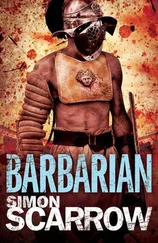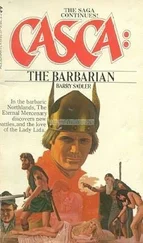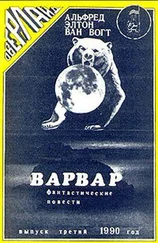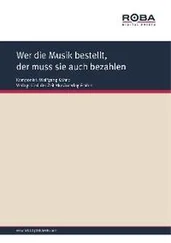
The pigeon is sexually obsessed. As soon as it has swallowed a mouthful and has regained a little strength, there it is, back in the clutches of its demon. Its throat rattles (who ever called that cooing?), a thick rattle that would fluster a hermit, and at once the female responds, she always responds, even if she does not wish to be approached immediately — a rattle that overwhelms her, that is much bigger than she, and heavy, obese.
And they fly off, noisier than the sound of boots.
INDIA
Kites are big good-for-nothings. As long as they can make use of the winds, and lounge around, they are quite happy.
Even the crows, who are afraid of everything, attack the kites. I saw a couple of them who really did not know where to go next. In the trees, the small birds attacked them. Crows chased them off a rooftop.

A mouse that is stalked by a cat can still escape. With a mongoose on its tracks, it can still keep a spark of hope.
But if a crow, perched on a branch, has noticed it, all is up. Diving almost on the perpendicular, or if the branches do not lend themselves to this, slipping down on a slant or even horizontally, it arrives, it is there, it carries it off. Fast though the mouse may run, it is like a man who is running swiftly, and is pursued by a plane. He is lost. He is irrevocably lost.
MALAYA
The red-beaked white-stoppers are lighter and better shaped than the sparrow, with feathers so close together no wind can lift them.
The red-beaked white-stoppers have a specialty. As soon as there are two of them installed on a branch (and when there is one, an instant later there are two of them) one retreats (oh, a very little retreat) sideways along the bough and without turning its head.
The other at once moves along (oh, a very little move) the same distance — an eighth of an inch.
They spend hours in this way. For a tree has more than one branch. As soon as a branch has exhausted its possibilities of fun, on to the next. And no ugly chirping like sparrows; no, sometimes, rarely, a little ‘tac…’ to show that it is not an empty thing. And though small, it has none of that epileptic headshaking that makes the sparrows so silly and so foreign to us.
ZOO IN SAIGON
The Jabiru does not eat a fish that is alive. He swallows it dead. He seizes it therefore, and clinches his beak on it, on the head, on the body, tosses it, catches it again, and again tosses it and recaptures it till it is dead.
There is the prudent Jabiru, and the imprudent Jabiru.
The imprudent Jabiru, that is to say, who is satisfied with a semblance of death (and beware of the bones of a fish that is alive and struggling in the stomach) is the one who carries it onto the pebbles where he gives it many a blow with his beak till it lies still. Then he eats it. But any experienced Jabiru knows that a fish that has stopped moving on the pebbles may not be dead, and may still be dangerous. That is why the prudent Jabiru dips it in the water, to test it, and in fact very often the fish is alive, and at once, though very slowly, hopelessly, seeks to abandon the scene and death. It happens also that a Jabiru is unable to get his fish out of the water, though he has given it many blows, but each time it falls back. Then all of a sudden, impatiently, he waves immense and noisy wings over the pond and he wonders, and you wonder, and all the other birds wonder what is going to happen.

The Chinese people are born craftsmen.
Everything that can be discovered by tinkering the Chinaman has found.
The wheelbarrow, the printing press, engraving, gun-powder, the rocket, the kite, the taximeter, the water mill, anthropometry, acupuncture, the circulation of the blood, perhaps the compass and a quantity of other things.
Chinese handwriting seems like the language of contractors, a group of workshop signs.
The Chinaman is a craftsman and a clever craftsman. He has a piano player’s fingers.
Unless you are clever you cannot be Chinese; it is impossible.
Even to eat the way he does, with two little sticks, requires a certain cleverness. And this cleverness he has sought. The Chinaman could have invented the fork, which a hundred races have discovered, and used it. But this instrument, which requires no skill to manipulate, is distasteful to him.
In China the ‘unskilled workman’ does not exist.
What is simpler than to sell newspapers?
A European newsboy is a shouting, romantic fellow, who tears about, screaming at the top of his voice: ‘Times. Herald-Tribune,’ and gets under your feet.
A Chinese newsboy is an expert. He examines the streets where he is going on his rounds, observes where the people are to be found and, using his hand as a megaphone, lets out his voice, now toward a window, now toward a group there on the left, wherever it is necessary, calmly.
What is the use of letting your voice run away with you, tossing it where there is no one to catch it?
In China, you have nothing that is not clever.
Politeness here is not a simple refinement, left more or less to the judgment and good taste of each one.
The chronometer is not a simple refinement more or less left to the judgment of each one. It is a work that required years of application.
Even the Chinese bandit is a qualified bandit, he has a technique. He is not a bandit on account of a sense of social outrage. He never kills uselessly. He does not seek the death of people, but the ransom. He refrains from doing them the slightest bit more damage than is necessary — cutting off finger by finger and sending them to the family with demands for money and dark threats.
On the other hand, cunning in China is not associated with evil more than with anything else.
Virtue is the thing that is the most ‘cleverly contrived.’
Take, for example, a corporation often looked down on: that of the porters.
Porters, the world over, usually pile up on their heads and on their backs or their shoulders everything they can. They are not conspicuous for their intelligence. No, indeed.
Now the Chinaman has succeeded in making his job a work of precision. What the Chinaman likes more than anything is equilibrium. In a wardrobe, one drawer that balances with three, or two, or with seven. The Chinaman who has a piece of furniture to carry divides it in such a manner that the part of it hanging behind him balances with the part of it hanging in front of him. Even a piece of meat he carries dangling from a string. These things are slung from a big bamboo stem carried over his shoulder. Often you can see, at one end, an enormous saucepan, or a smoking kettle, and at the other boxes, plates, drawers. One can easily see what skill this requires. And the procession goes on throughout the Far East.
CHINESE TYPES
Modest and rather retiring, choked, one might say, phlegmy, the eyes of a detective, and on his feet felt slippers, and wearing them out at the toe, as is only natural; the hands in the sleeves, jesuitical — artlessness that is perfectly transparent, but would stop at nothing.
Face of gelatine, and suddenly the gelatine melts and out of it comes a ratlike darting glance.
With something drunken and soft about it; a sort of rind between the world and himself, and he detests water (excellent for the personality, in fact, is dirt).
Not yellow, the Chinaman, but chlorotic, pale, lunar.
In the theater, the men sing like castrati, accompanied by a violin that quite resembles them.
Читать дальше














